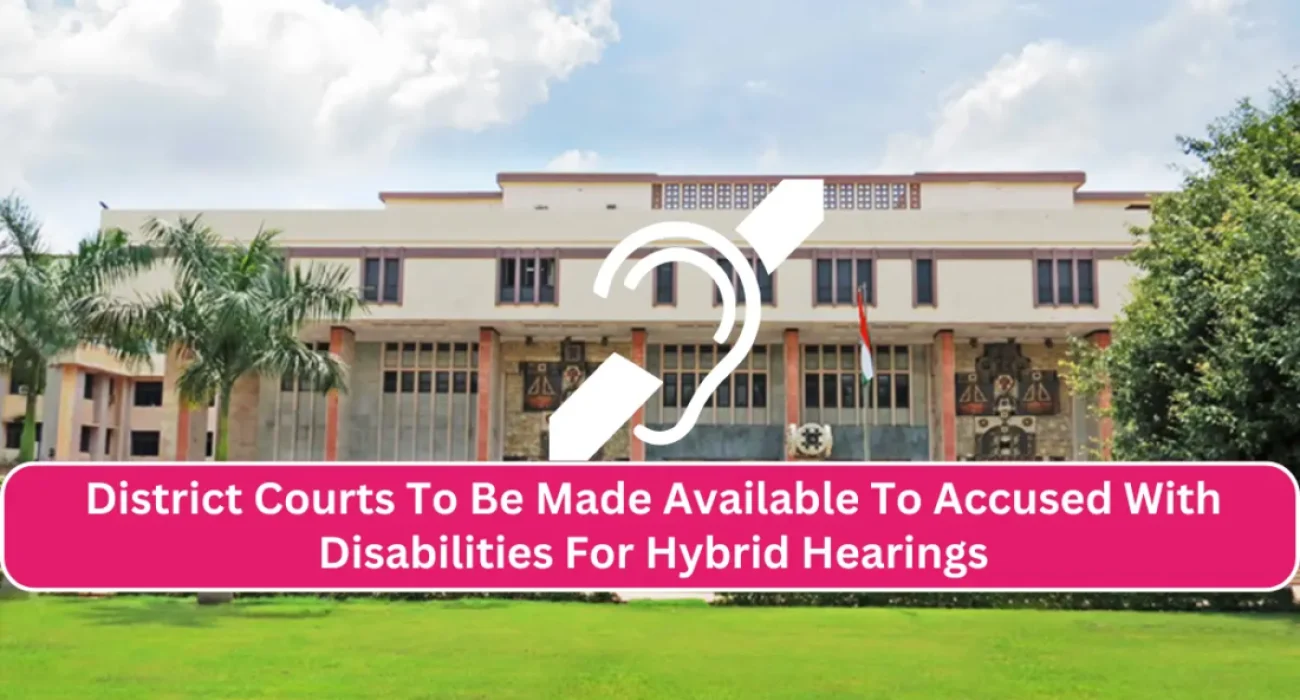

A Circular was issued by the Hon’ble Acting chief justice of Delhi High court to make
courtrooms more accessible. Acting Hon’ble Chief Justice issued the directive in accordance
with a single bench decision, directing the Delhi Government to supply the necessary
infrastructure and funding to purchase necessary electronic devices for conducting trials in cases
involving accused individuals with disabilities.
In the case of Rakesh Kumar Kalra Deaf Divayang vs. State Govt. Of NCT Delhi. The facts of t
he case were that The petitioner, a deaf divayang suffering from cataracts brought on by
post-traumatic stress disorder and a misaligned jaw joint, married a differently abled wife in 1996.
2012 saw the start of marital problems, which resulted in the wife filing complaints of
verbal and physical abuse. Due to his injuries, the petitioner was unable to hear verbal
conversations or speak clearly, which made it difficult for him to participate in trial proceedings.
In order to ensure a fair trial, he asked that a special court be established under the 2016 Rights
of Persons with Disabilities Act. He also requested special accommodations to be provided
during the trial, including the ability to record the proceedings, write in Hindi or English, and
have access to printed materials and computer screens with larger fonts.
The Hon’ble Court observed the difficulties judges may encounter in tackling imperceptible
obstacles and underscores the judiciary’s enduring dedication to upholding equity and impartial
legal procedures. It advocates for trial court infrastructure to be reformed in order to provide
accommodations for accused people with disabilities, akin to those implemented for vulnerable
witnesses.
It contends that doing so would eliminate obstacles and guarantee a fair trial for every citizen, in
line with the justice mandate of the constitution. In the end, it emphasizes the significance of
making sure that no person feels excluded or unfairly treated by the legal system because of their
disability, highlighting the idea that justice must be carried out but also seen to be carried out.
The circular establishes that the infrastructure of accessibility workstations in the e-Sewa
Kendras, set up in this Court and all the Delhi District Courts in addition to the Vulnerable
Witness Rooms, be utilized as the room for the accused Persons with Disabilities to attend the
hybrid hearings in various Courts in Delhi.
The circular issued by the Hon’ble Acting Chief Justice of the Delhi High Court is a major step
toward guaranteeing justice and accessibility for people with disabilities in the legal system. This
order highlights the judiciary’s dedication to protecting the rights of all citizens, irrespective of
their physical or mental capacities, and was spurred by a decision from a single bench.
-By Anaida Khan Pursuing 4th year of BALLB (Hons.) from Dharmashashtra National Law University, Jabalpur
IAW resources
Browse our help directory